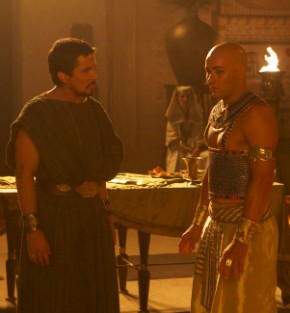Sympathy for Pharaoh

Some called 2014 the year of the biblical epic. Ridley Scott’s Exodus: Gods and Kings is the third entry in the category after Son of God and Noah, and Ang Lee reportedly has his own Exodus-based film in the works. But Exodus does not resemble these films as much it does Oliver Stone’s 2004 film Alexander. That sword-and-sandal disaster signed up great actors, dragged on interminably, delivered characters who were impossible to care about, and told the story of Alexander the Great without bothering to tell us why it matters. In Exodus, too, great actors are wasted, the story retells and rewrites scripture without benefit, and the whole endeavor feels joyless.
As a director Scott has produced some of the best science fiction ever made (Blade Runner, Alien), and his ability to work on a grand scale is visible here. Scott’s ancient Egypt is magnificent. Sculptures, pyramids, and memorials are thrown up one after another by legions of Hebrew slaves.
The squalor of the Hebrews’ living conditions and their harsh treatment are believable. Chariots look fast and furious as dirt clods fly at the viewers’ 3-D glasses during fight scenes. The Red Sea collapsing on the Egyptian army looks like the wrath of God. The angel of death approaches in the night, soft as a whisper, and life is taken from the firstborn without a sound—until the wails. The camera work, computer-generated effects, and set design are not the problem; the story is.




